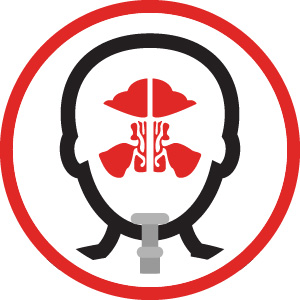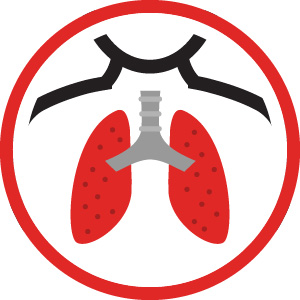Getting to the bottom of sinus and sleep concerns may feel like you have a long, uphill journey ahead of you. The pills and sprays are getting you some temporary relief, but it comes with a side of frustration and fatigue. You've tried searching online for the best remedies, and with thousands of results at your fingertips, it's never recommended to take advice from a Google search. You may even be faced with a sleep divorce, just to get a quiet night's sleep.
It's time to ditch the temporary fix, understand that Google isn't a doctor and a sleep divorce isn't a solution to snoring. Once you've finally decided to find a serious solution to your inability breathe well, what kind of specialist do you see?
An Otolaryngologist and a Pulmonologist both treat areas of the respiratory system in addressing your breathing concerns. Here is the difference between an Otolaryngologist and a Pulmonologist:
What is an Otolaryngologist?

An Otolaryngologist is a physician who specializes in the treatment and management of areas of the upper respiratory system: the nose, throat and ears. Often referred to as an ENT for short, they provide both medical and surgical care specific to the following areas:
Ears: The treatment of hearing disorders, infections, balance disorders, ear noise, nerve pain and facial and cranial nerve disorders.
Nose: Care of the nasal cavity and sinuses; diagnosis, management and treatment of allergies, smell disorders, polyps, infection, and nasal obstruction.
Throat: The treatment of voice, resonance, swallowing and airway conditions.
Head and Neck: The treatment of disease, tumors, facial trauma and deformities of the face.
When You Should See an Otolaryngologist
Specific to breathing, schedule an appointment with an ENT if you suspect you are having issues in the following areas:
- Injury to the ears, nose or throat
- Nerve issues in the ears, nose or throat
- Pain in the ears, nose or throat
- Sinus obstruction
- Congestion
- Runny or Stuffy Nose
- Deviated Septum
- Inability to smell
What is a Pulmonologist?

A Pulmonologist is a physician who specializes in primary areas of the respiratory system, including: the thyroid, trachea (windpipe) and lungs.
While the respiratory system is its own specialty, a pulmonologist specializes on diseases like asthma, pulmonary fibrosis and COPD.
When You Should See a Pulmonologist
Specific to breathing, a pulmonologist would be helpful in addressing:
- Chest pain or tightness
- Fainting
- Wheezing
- Recurring or chronic bronchitis
- Asthma
- Emphysema
- Interstitial Lung Disease
While an Otolaryngologist and a Pulmonologist both treat areas of the respiratory system in addressing breathing concerns, it may be best to consult with your primary care physician before scheduling an appointment with a specialist.


